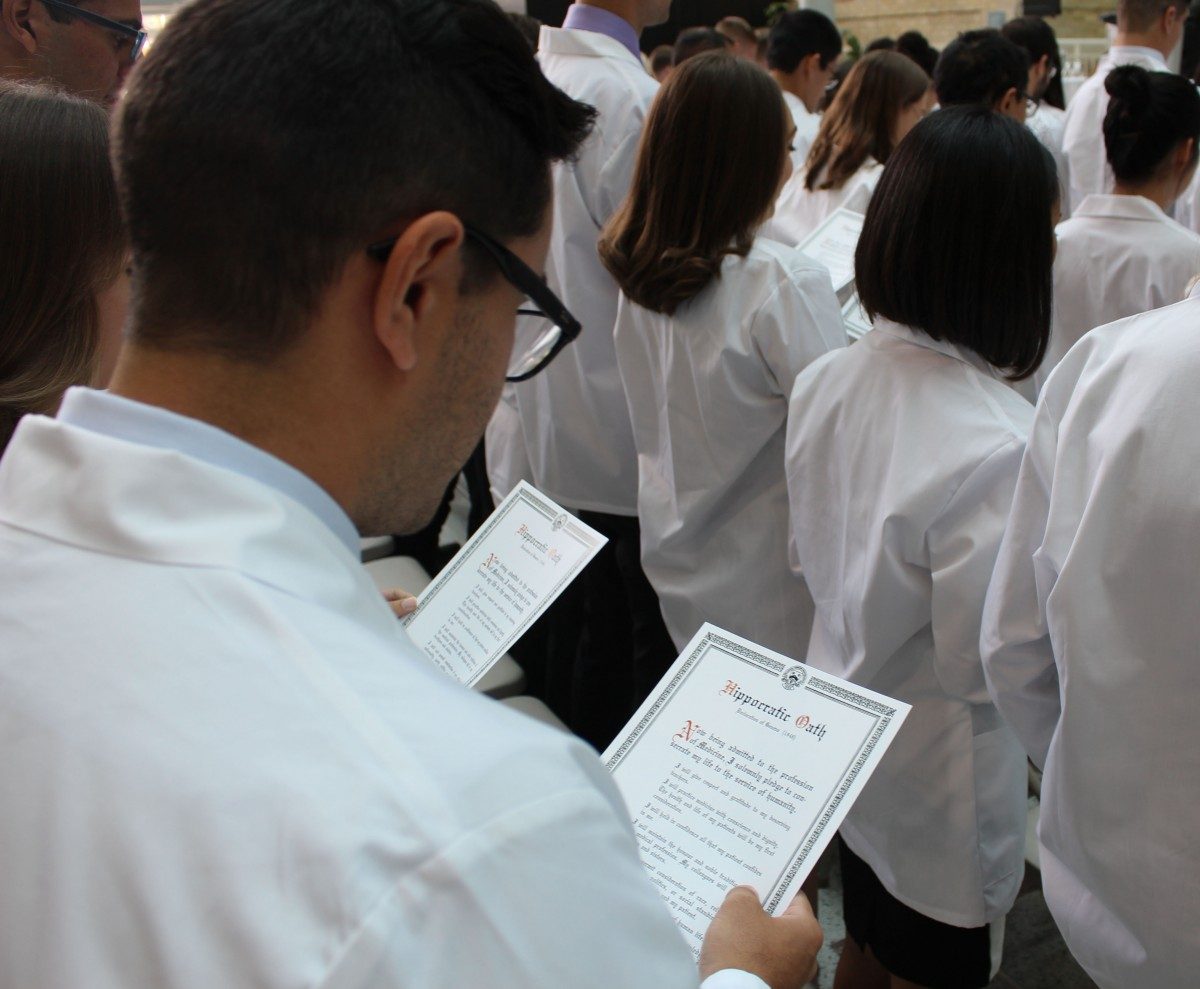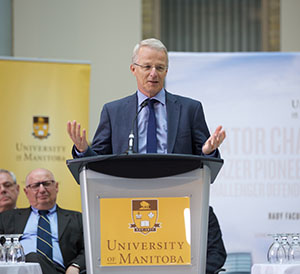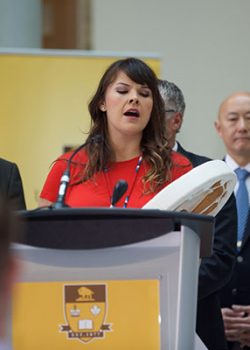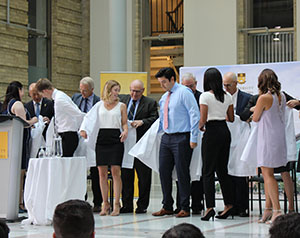
Take action on Indigenous health, speakers urge new medical students
Health is a human right, a prominent doctor and researcher in the field of global public health told first-year medical students at their official welcome ceremony.
“Everyone has the right to the highest attainable standard of physical and mental health, which includes access to all medical services, sanitation, adequate food, decent housing, healthy work conditions and a clean environment,” Dr. Ties Boerma told the Class of 2022 at Inaugural Exercises for the Max Rady College of Medicine, held on the Bannatyne campus on Aug. 22.
 Boerma, a U of M professor who holds a Canada Research Chair in population and global health, was formerly the head of health statistics for the World Health Organization. The Dutch physician has worked extensively in Africa and is director of the international Countdown to 2030 for Women’s, Children’s and Adolescents’ Health.
Boerma, a U of M professor who holds a Canada Research Chair in population and global health, was formerly the head of health statistics for the World Health Organization. The Dutch physician has worked extensively in Africa and is director of the international Countdown to 2030 for Women’s, Children’s and Adolescents’ Health.
In his Alan Klass Memorial Address to the medical students, Boerma urged them to remember that health and disease are social issues. In Canada, he noted, the life expectancy of Indigenous people is about 12 years shorter than that of the general population. “You must do something about it,” he said.
 With a crowd of family members and friends looking on in the Brodie Centre Atrium, the 110 members of the Class of 2022 were formally cloaked in their first white coats and recited the Hippocratic Oath, vowing to practise medicine ethically.
With a crowd of family members and friends looking on in the Brodie Centre Atrium, the 110 members of the Class of 2022 were formally cloaked in their first white coats and recited the Hippocratic Oath, vowing to practise medicine ethically.
Like Boerma, Dr. Brian Postl [MD/76], dean of the Max Rady College of Medicine and the Rady Faculty of Health Sciences, called on the future physicians to rectify Indigenous health inequities.
“Indigenous people have very large health gaps that we must address, and many of those gaps are rooted in systemic racism,” he said, adding, “Don’t be afraid of it, learn about it.”
The Max Rady College of Medicine has admission policies aimed at ensuring that the student body reflects the diversity of the Manitoba population. The class includes nine Indigenous students.
In addition, Postl said, “22 per cent of you are first-generation university attenders in your family; 37 per cent are from families whose incomes are below the Canadian median; 43 per cent of you consider yourselves part of a visible minority; 27 per cent have a first language other than English and French; and five of you declare a disability. These are enormous strengths.”
 After the ceremony, Ashley Monture, a 24-year-old student who is of Mohawk and Cree descent, said the most moving part for her was the honour song performed by Indigenous physician Dr. Lisa Monkman.
After the ceremony, Ashley Monture, a 24-year-old student who is of Mohawk and Cree descent, said the most moving part for her was the honour song performed by Indigenous physician Dr. Lisa Monkman.
Monture’s goal is to practise family medicine in northern and rural communities. “It’s very important to me to be able to advocate for the health of Indigenous people, and for Indigenous patients to see Indigenous physicians,” she said.
Luke Sadler, 33, is starting medical school with a background in early childhood education and community service. As the parent of a seven-year-old son with special needs, he said “a big driving factor” in his decision to enter medicine was that he hopes to use his own experience to help patients navigate the health-care system.
Sandhini Lockman, 23, conducted research on a neurological disorder while pursuing her master’s degree in biochemistry and medical genetics at the U of M. She hopes to become a physician who makes a difference in the field of mental health.
 Lockman said being cloaked in the white coat of a physician was the highlight of the ceremony. “So much time and effort went into this moment. When they finally put the coat on you, you feel accepted into the profession,” she said. “That was emotional for me.”
Lockman said being cloaked in the white coat of a physician was the highlight of the ceremony. “So much time and effort went into this moment. When they finally put the coat on you, you feel accepted into the profession,” she said. “That was emotional for me.”






